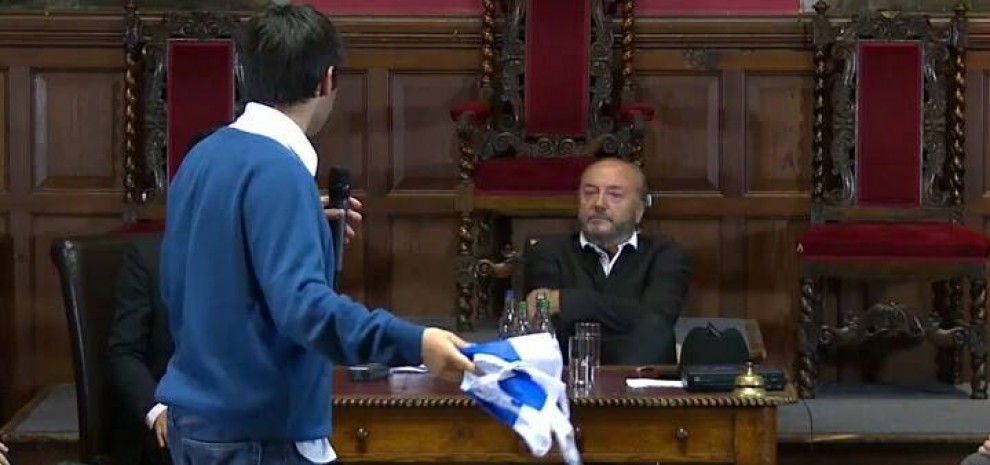I only made it to the last 25 minutes of Joel Beinin’s talk at SOAS last night but, sadly, I still have enough material to write a blog about it.
Beinin’s talk, The New Internationalism, High-Risk Activism, and Popular Struggle against the Israeli Occupation in the West Bank, was chaired by Gilbert Achcar, who once publicly accused me of leaving insulting messages on his answering machine.
Meanwhile, Beinin is Professor of Middle East History at Stanford University. Admittedly, I hadn’t heard of him but Wikipedia has a surprisingly large page about him. According to the description he was “raised as a Zionist” and at one stage intended to make aliyah but having encountered some racist attitudes on a Kibbutz he returned to America instead.
Beinin has published a lot also. I only read one article of his when I got back last night but if I say that the article trashes Peter Beinart’s call for Israeli Jews living on the West Bank to be boycotted because this doesn’t go far enough you get the gist of Beinin’s politics.
In this article Beinin also denounces those who condone “indecent trivialisation of the Holocaust” when they compare levels of anti-Semitism today to those of the late 1930s. (That said, if anyone can explain the difference between boycotting Jewish-owned shops in the late 1930s and boycotting Jewish-owned shops, like Covent Garden’s Ahava and Brighton’s Ecostream, today then please let me know.)
But, hey, guess who is the real master of “indecent trivialisation of the Holocaust”? None other than Joel Beinin himself!
You see, last night, Beinin started discussing Israel’s Prawer Commission Plan to move the Negev’s Bedouin population into far better equipped towns in return for compensation. Beinin described this as “putting them into what would effectively be concentration camps.” (see here from 2 mins. 25 secs.)
Oh, really? So would that be concentration camps like Auschwitz or Treblinka, possibly?
But, of course, Beinin doesn’t indecently trivialise the Holocaust, remember.
Towards the end of the event Beinin said there was a “rightward drift of Israeli society”, “a degradation of whatever there ever was of the democratic process” and “Israel itself, besides the occupation, is heading into an abyss and it’s not clear at all what might stop that.” (see here from 30 secs.)
Abyss means an “An immeasurably deep chasm, depth, or void”. Alternatively, it means “The abode of evil spirits; hell.”
And all this because Beinin once encountered some racists on a Kibbutz?


